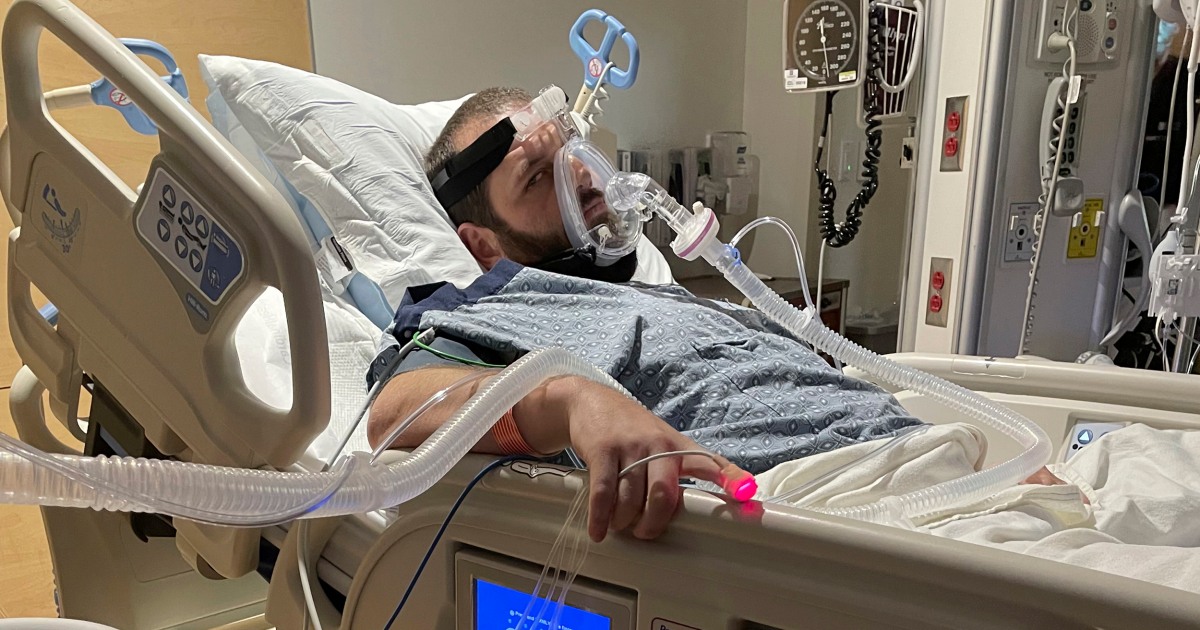
D.J. Ferguson, a 31-year-old father of two children with a third on the way, was lying near death at Brigham and Women’s Hospital in Boston last week. He was waiting for a heart transplant, and his failing heart put him high on the transplant eligibility list. But then the hospital removed him from the list because he is not vaccinated against Covid-19. As tragic as this is likely to be for Ferguson and his family, we think the hospital made the right decision.
Ferguson made his choice. Choices have consequences, sometimes very tragic consequences.
Organs are always in very short supply, forcing hospitals and transplant teams to decide who gets them. Hospitals rightly place considerable importance on which recipients are likely to live longer and better, preventing the waste of a precious resource and building trust that transplantation processes are consistent, reasonable and fair. The likelihood of transplant success is based, in part, on transplant candidates’ susceptibility to infections — an important cause of death after heart transplants. Ferguson’s decision not to get vaccinated against Covid makes him more susceptible to such infections.
Professional transplantation societies, such as the American Society of Transplantation, have recommended that any solid organ transplant candidate be vaccinated against all possible infections, including Covid. Many hospitals doing transplants have adopted these recommendations. The Brigham and Women’s vaccination requirements are a matter of public record, so the requirements should not surprise anyone.
Accordingly, in picking who gets a heart, hospitals have made vaccination one of a variety of considerations. That is not bias against the unvaccinated. It is trying to save the most lives with a scarce organ supply.
Covid vaccination requirements for transplant candidates are not addressing theoretical concerns. Researchers analyzing outcomes of solid organ transplant patients have found that more of them with Covid infections at the time of transplantation died in the hospital, more required mechanical ventilation, and more required time in ICUs than patients not infected.
Another consideration involves donor families. The decision to donate an organ can be excruciating, as most viable organs become available when an otherwise healthy person dies suddenly. The grieving family may have only a matter of hours after it is informed of the death of their loved one to decide whether to donate organs. In many instances, families agree to this because they know they can contribute to extending the lives of others who would perish for lack of organs.
Families who make decisions to donate are owed rationing policies that make the most out of their gifts. A family would in all likelihood feel aggrieved if the organ they agreed to donate went to a candidate with less of a chance to benefit than others, especially when those chances were diminished by a personal decision not to vaccinate.
Transplant centers also have to consider what offering organ transplants to unvaccinated candidates signals about their commitment to thoughtful use of their services and patient safety. Would this willingness make their constituencies wonder what other policies and processes work against the public good and individuals? Disregarding clinical evidence and standards of care concerning vaccination requirements for transplant candidates could make people wonder.
All this is to say that in general terms, giving a lower priority to people seeking solid organ transplantation who are not vaccinated against Covid is justifiable on ethical and clinical grounds. These general terms do not preclude consideration of individual patient circumstances that could yield exceptions to the Covid vaccination requirement. But from what we know about Ferguson’s case, should Brigham and Women’s make an exception for him? Our answer is no.
Had Ferguson’s heart failure arisen unexpectedly from a devastating heart attack, then time would not have allowed Covid vaccination in advance of transplantation. However, he had reasons to have been vaccinated before such an event, which does not make an exemption from the vaccination requirement reasonable. And Ferguson’s predicament probably did not arise overnight; he needs a heart transplant because of a hereditary condition causing heart failure.
Ferguson is young, with a still-expanding family. This scenario matters in the calculation, as well. When everything else is equal, Ferguson’s youth and family situation ought to get priority. But given how many vaccinated people need transplants and the importance of transplantation system integrity, Ferguson’s family situation is not sufficient to prioritize him for a transplant, especially considering he made the choice not to be vaccinated.
Family members report two different reasons for Ferguson’s not getting vaccinated. His father said vaccination was “against his basic principles, he really doesn’t believe in it. … It’s his body, it’s his choice.” His mother says, “There are some adverse reactions he read about given his condition, and he made his decision.” Neither of these rationales is persuasive. Adverse vaccine reactions are the least of a transplant candidates’ worries. And standing on principle if it means lowering your chances of living means it is time to rethink your principles.
As the pandemic enters its third year, most of the public has had the opportunity to become educated about it. Ferguson’s mother, a trained nurse, confirmed that her son “is an informed patient.”
As his mother also said, Ferguson made his choice. Choices have consequences, sometimes very tragic consequences. In the meantime, Ferguson agreed to a left ventricular assist device, which should buy him enough time to get vaccinated. Let’s hope he rethinks his choice with the time he has been given.
Source: | This article originally belongs to Nbcnews.com










